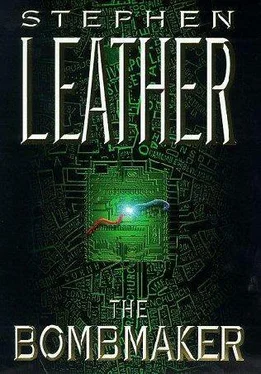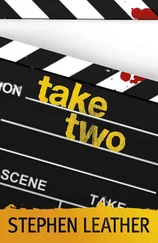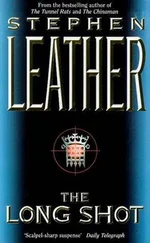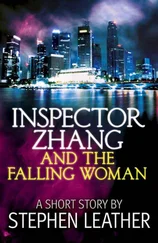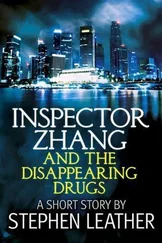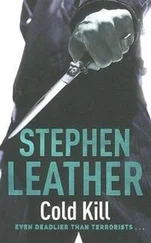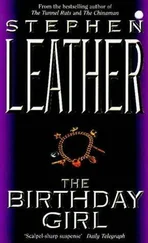Stephen Leather - The Bombmaker
Здесь есть возможность читать онлайн «Stephen Leather - The Bombmaker» весь текст электронной книги совершенно бесплатно (целиком полную версию без сокращений). В некоторых случаях можно слушать аудио, скачать через торрент в формате fb2 и присутствует краткое содержание. Жанр: Триллер, на английском языке. Описание произведения, (предисловие) а так же отзывы посетителей доступны на портале библиотеки ЛибКат.
- Название:The Bombmaker
- Автор:
- Жанр:
- Год:неизвестен
- ISBN:нет данных
- Рейтинг книги:5 / 5. Голосов: 1
-
Избранное:Добавить в избранное
- Отзывы:
-
Ваша оценка:
- 100
- 1
- 2
- 3
- 4
- 5
The Bombmaker: краткое содержание, описание и аннотация
Предлагаем к чтению аннотацию, описание, краткое содержание или предисловие (зависит от того, что написал сам автор книги «The Bombmaker»). Если вы не нашли необходимую информацию о книге — напишите в комментариях, мы постараемся отыскать её.
The Bombmaker — читать онлайн бесплатно полную книгу (весь текст) целиком
Ниже представлен текст книги, разбитый по страницам. Система сохранения места последней прочитанной страницы, позволяет с удобством читать онлайн бесплатно книгу «The Bombmaker», без необходимости каждый раз заново искать на чём Вы остановились. Поставьте закладку, и сможете в любой момент перейти на страницу, на которой закончили чтение.
Интервал:
Закладка:
She looked through the glass panel by the door at the office opposite. Green-eyes had a camp bed there, and it was where she kept her clothes. It was also where she'd left the briefcase. The mobile phone was in the briefcase, but the case had combination locks. Each lock had three dials. Zero to nine hundred and ninety-nine. If it took two seconds to try each combination, she could do all one thousand in just over half an hour. An hour to do both locks. Maximum. In all probability it would take a lot less than an hour. But what then? She'd have access to the phone, but who would she call? The police? She was no further on than when she was being held on the industrial estate. Sure, she knew where the bomb was, and the police would be able to arrest her three captors, but what would happen to Katie? Could she be sure that Green-eyes would confess all and tell the police where Katie was being held?
Andy chewed slowly, barely tasting the sandwich. First things first. The briefcase was in the office on the other side of the corridor. She put down her half-eaten sandwich and went to the door, easing it open carefully. She could hear her three captors working in the main office area. There was no way they could see her unless they were standing in the corridor itself.
Andy took a deep breath, then tiptoed across the corridor and opened the door to the second office, her heart in her mouth. The briefcase was on a teak desk. She set the first combination to zero, zero, zero. She tried the lock. It wouldn't move. She flicked the end dial. Zero, zero, one. Still locked. She looked at her watch. She'd try for five minutes, then she'd have to get back to the main office.
The door to the interview room opened and Martin Hayes looked up. It was the inspector. FitzGerald. 'Now what?' said Martin. 'Back to the cell?'
FitzGerald shook his head. 'You can go, Mr Hayes. I think we've taken up enough of your time.'
Martin ran his hand over the stubble across his chin. He'd been in the Pearse Street station for almost eighteen hours and hadn't been given the chance to shave or clean his teeth, though he'd managed to wash his face in a sink in the men's room. He felt dirty and his shirt was sticking to his back. 'You're letting me go?'
'It's not a question of letting you go, Mr Hayes. You're not under arrest. You've just been helping us with our enquiries. You've been free to leave at any time.'
Martin stood up. 'So you believe me?'
'Let's just say we've no evidence that you've had anything to do with the disappearance of your wife and daughter,' said FitzGerald, holding the door open wide. 'But we might want another word with you again soon. So don't leave town, as they say.'
'They've not disappeared,' said Martin, but he knew that the detective wasn't interested in his denials.
He walked away from the grey stone Garda station and caught a taxi near Trinity College. They'd let him go, but it was as clear as day that FitzGerald didn't believe him, and Martin didn't blame him. He had never been a good liar, and authority figures always made him nervous, even when he hadn't done anything wrong.
He stared out of the taxi with unseeing eyes, wondering what he should do next. They'd presumably taken him out of the house so that they could check the bloodstain on the banister, and they'd probably searched through the house, too. He'd already admitted that it was Andy's blood, so hopefully it wouldn't be an issue any more. But they'd keep digging, and if they were to speak to his financial advisers, they'd discover that he'd been liquidating his assets and transferring money into his current account. What would they make of that? Martin wondered. They'd assume that he was about to withdraw the money. That he'd killed his wife and daughter and was about to disappear himself.
If nothing else, he'd be hauled into Pearse Street again for more questioning, and the more often that happened the more likely it was that Katie's kidnappers would discover that he was in contact with the police.
The taxi dropped him outside his house and he went inside, where he was practically bowled over by Dermott. He went straight to his answering machine. There were no messages. He let the dog out into the back garden, then made himself a cup of instant coffee and took it upstairs. Dermott came running up the stairs after him, tail wagging like a metronome.
Martin went into Katie's bedroom and sat down on the bed. Dermott dropped down and rolled over on to his back, begging for his stomach to be rubbed. Martin patted the dog and sipped his coffee. He leaned over to put his cup on Katie's bedside table, and froze. There was a car outside his house. A Garda patrol car. Not exactly outside – they'd parked about a hundred feet away from the driveway, but they had a clear view of the house. Martin cursed under his breath. He hadn't put the light on so he didn't think they'd be able to see inside, but he slowly backed away from the window and went downstairs.
He paced around the kitchen, clenching and unclenching his fists. They were giving him no choice. He'd have to leave Dublin. If the kidnappers saw the Garda car, they'd think they were there because he'd called them in. Even worse, there was a good chance that the detectives would haul him in again for more questioning. They surely suspected him -why else the overt surveillance?
It was late, probably too late to get a flight out of Dublin that night. Besides, there was an outside chance that FitzGerald had men at the airport watching for him. He'd be safer flying through Belfast.
He took a briefcase from his study and emptied out the papers it contained. He put in an unopened flight kit he'd been given on a business trip he and Padraig had made to Copenhagen a few months earlier, together with two clean shirts, underwear and socks. He put his mobile phone in his suit pocket. It was a GSM model and would work in the UK. He closed the briefcase. What else? Money. He'd need money. He had Visa cards that he could use to withdraw cash from money machines in the UK, but he also had some Irish money in his desk drawer. He took the money out and put the notes into his wallet.
He put his briefcase by the back door and then went out into the hallway and looked at the answering machine. What if Andy called again? Or if the kidnappers tried to get in touch? He recorded a fresh message, asking callers to telephone his mobile number, then checked it. He could hear the tension in his voice, the sound of a man about to go over the edge. He took a deep breath and recorded a second version. This time he sounded more relaxed.
In a cupboard under the hall were several electrical timers that he and Andy used to set lights to go on and off while they were on holiday. He went upstairs and fitted one to the plug of a lamp on the dressing table, timed to go off later that night. Then he drew the curtains and went downstairs. He fitted timers to lamps in the sitting room and the kitchen, overlapping the on and off times.
He took a last look around the house. Now what? Both cars were parked in the drive at the front. He'd have to go through the back garden and over the wall, maybe catch a taxi. He shook his head. No, a taxi driver might remember him. But he couldn't walk to the station. In fact, catching a train wasn't a good idea, either.
He went back into the kitchen and finished his coffee, then washed his mug. As he put it on the draining board, he realised what he'd have to do. He called Padraig on his mobile.
'Padraig. It's me, Martin.'
'What's up, Mart?'
'I need a favour. Big time.'
'Sure.'
'Can you pick me up on Morehampton Road? Opposite Bloomfield Hospital?' Martin went into the hallway and locked and bolted the front door, still talking on the mobile phone.
'No sweat. What's up? Car broken down, yeah?'
'Something like that. I'll explain when I see you. About ten minutes, okay?'
Читать дальшеИнтервал:
Закладка:
Похожие книги на «The Bombmaker»
Представляем Вашему вниманию похожие книги на «The Bombmaker» списком для выбора. Мы отобрали схожую по названию и смыслу литературу в надежде предоставить читателям больше вариантов отыскать новые, интересные, ещё непрочитанные произведения.
Обсуждение, отзывы о книге «The Bombmaker» и просто собственные мнения читателей. Оставьте ваши комментарии, напишите, что Вы думаете о произведении, его смысле или главных героях. Укажите что конкретно понравилось, а что нет, и почему Вы так считаете.
